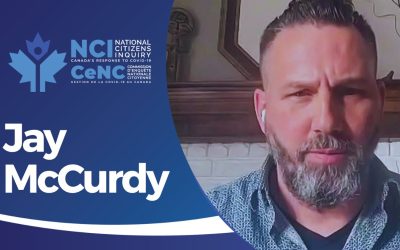As the holder of two academic degrees, I’d like to think that formal education is still relevant. But it’s not hard for anyone to find a friend, acquaintance, or family member who spent four or more years in university, and is having a tough time finding gainful employment. The reality is that while education is important, it isn’t everything. Unfortunately, many students don’t seem to realize this going into post-secondary education. The most successful people I know all sought out other opportunities while in school, and shortly thereafter. Many volunteered with political campaigns and NGOs, others blogged (not just for fun), sought out internships relevant to their academic studies, or held down part time jobs (I personally did all of these things).
Given that so many students float through university, there are room for alternative forms of education. The two most obvious are apprenticeships, and military service. But for those looking for more white collar opportunities, perhaps an alternative that fuses aspects of an internship with aspects of a university education would be a preferable alternative to a four year degree. Some young people are about to find out.
A recent article in The Daily Caller profiled Praxis, a new educational venture being launched in the united states that seeks to enter that space. Their website describes it as:
“An intensive 10-month program for those who want more than college. Praxis is for entrepreneurial 18- to 25-year-olds who want real-world career experience and the best of online education all in one. Participants work 30 to 40 hours a week for dynamic small businesses across the country and complete 10 hours a week of rigorous online material, workshops, projects and assignments. The program runs September through June, or February through November.”
While I’m not willing to pontificate on people’s educational choices, the approach that Praxis promises sounds appealing. Praxis founder Isaac Morehouse (full disclosure: he is a personal friend) pointed out in a blog post introducing Praxis (I recommend reading the post, which details his own experiences) that working while in college forced him to learn valuable life skills, and that he actually learned more on his own than in the classroom.
Morehouse describes his vision for the program as follows:
“What’s needed is a combination of the best online content, compiled and structured to challenge and expand the mind while showing how it applies in real life, and on the ground experience at businesses that create value. Imagine working through interdisciplinary online courses – readings, videos, podcasts – until you really grasp the topic. Imagine being tested not with multiple choice quizzes or essays, but in conversation with experts in the field through an oral exam. Imagine working full-time with entrepreneurs and small business owners, and seeing and being a part of every aspect of business.”
While I think he understates the potential value of in-class learning (for those who *want* to learn), he is right that independent learning (including online material) can be at least as good as attempting to coast through a four year degree for many students. And given the cost of post-secondary education in the United States, a 10 month program that has a projected net cost of $0-$4000 could well prove to be quite successful. At very least, it will certainly provide some students with a lesson in entrepreneurship.


